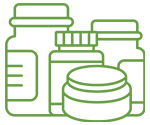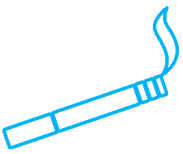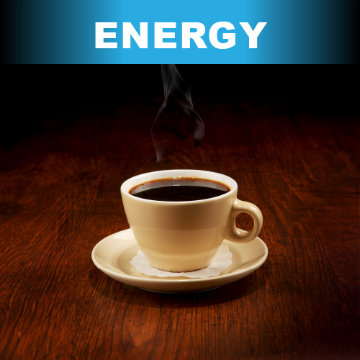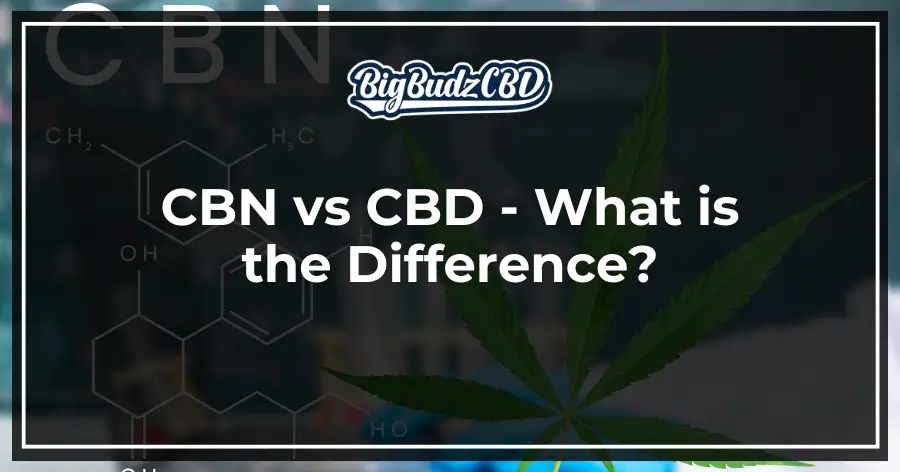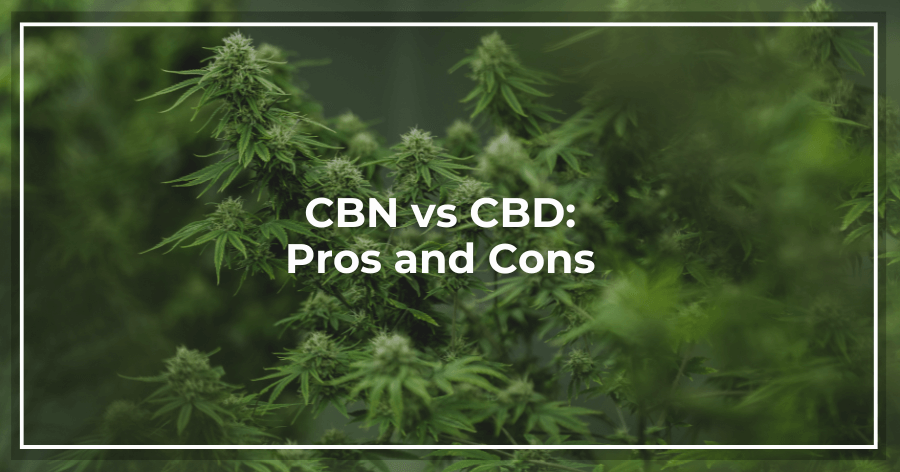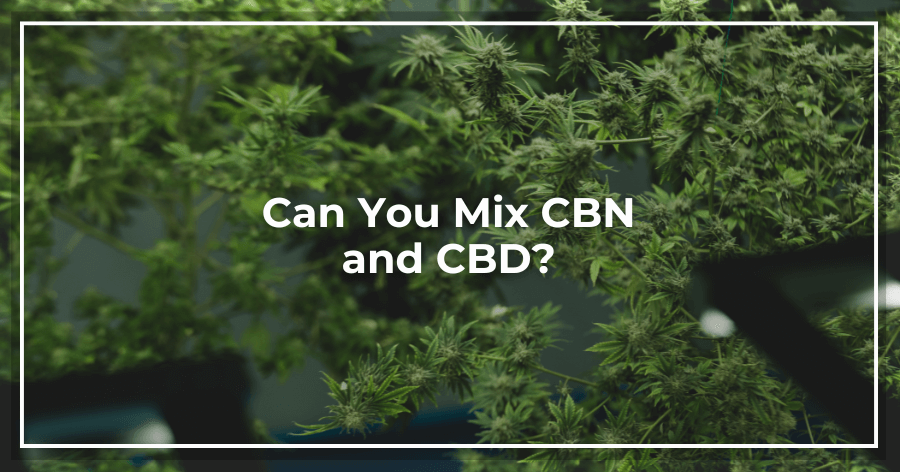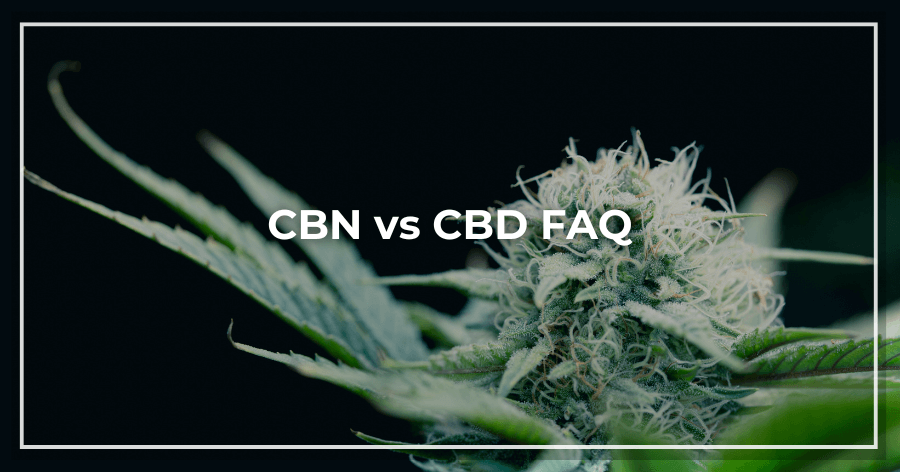Cannabinol (CBN) and Cannabidiol (CBD) are only a couple of the over one hundred cannabinoids that you’ll find in a cannabis sativa plant.
Although we tend to talk about CBD more often, professionals are now turning their eyes toward CBN, too!
So, what’s the difference, and how do you choose between the two when selecting the perfect one for your wellness needs?
As you read, we’ll discuss the difference between CBN and CBD, the benefits, pros and cons, drawbacks, and which one to pick for specific needs.
CBN vs CBD: What is it?
Cannabidiol (CBN)
As a minor constituent, CBN is made as THC is degraded.
You’ll usually find cannabidiol in fewer concentrations in cannabis plants, but as they’re exposed to light and air and age, their THC will convert to CBN.
As a result, cannabis products and aged cannabis that aren’t stored correctly will have higher amounts of CBN.
Through our endocannabinoid system, our bodies absorb CBN.
Similar to CBD, it indirectly binds to CB1 and CB2 receptors, but it doesn’t bind as well as other cannabinoids.
This means it doesn’t produce the same effects on our central nervous system.
CBN is known to have soothing properties, which can help with sleep, and antibiotic and anti-inflammatory properties.
Additionally, it’s not as easy to find CBN products like CBD.
Similar to CBD, each state varies with the legality of CBN.
Cannabidiol (CBD)
As a primary cannabinoid in sativa plants, CBD is often used by humans due to its therapeutic properties and its effects from THC.
Through the endocannabinoid system, our bodies absorb CBD.
Although more research is needed, it’s said to help with pain and sleep disorders, arthritis, migraines, seizures, and anxiety.
Due to its growing popularity, you can find CBD products in various forms and doses, including tinctures and oil, edibles such as drinks and gummies, topicals, and capsules.
Despite how common it’s become to use CBD, its legality still varies from state to state.
CBN vs CBD: Pros and Cons
Pros & Cons of CBN
The primary advantage of using CBN is that it has slight psychoactive effects, which may have many benefits for people who need relief from anxiety, insomnia, and several other conditions.
It also has antibiotic and inflammatory properties, though researchers are still conducting more studies.
CBN is known to be relatively safe, but similar to CBD, there’s very little quality control on the production.
Researchers continue to learn about CBN and have a long road ahead to learn more about its use.
With CBN still being in the early stages of research, this means you may find it challenging to find certain CBN products, and they may be more expensive than CBD products.
Pros & Cons of CBD
One of the primary advantages of CBD is that it has several therapeutic benefits without creating a psychoactive effect.
Due to this reason, it’s a popular option for people who want to benefit from cannabis without it affecting them mentally.
Additionally, CBD is also straightforward to find in several forms, making it an excellent option to include in your daily routine.
According to Peter Grinspoon, M.D., the evidence for efficacy isn’t definite except for treating epilepsy.
With the exception of Epidiolex, CBD isn’t held to the same FDA standards as other medications
Meaning consistency and product quality may vary.
Although many people have no problem tolerating CBD and it has minimal side effects, some may experience side effects such as loss of appetite, diarrhea, and drowsiness.
Can You Mix CBN and CBD?
Yes, you can mix CBN and CBD, as some products contain both cannabinoids.
While some products may only contain one, both can be combined.
Additionally, there is specific research that suggests combining both CBN and CBD will help them work more efficiently than taking them separately.
When you take these two cannabinoids together, you would take less of each one, getting the same results.
Is CBN or CBD More Expensive?
Since CBN is categorized as a minor cannabinoid found in a cannabis plant, it means it has lower concentrations than THC and CBD.
It’s more challenging to distinguish CBN for research and medicinal purposes.
Additionally, THC takes more time to oxidize and convert into CBN.
When trying to list CBN on the ingredients, this can pose a challenge.
Ultimately, since there’s very little research on CBN and its products are harder to find, CBN is more expensive than CBD.
Is CBN or CBD Better for Sleep?
While both are suitable options for many people, the question remains, “Which cannabinoid is better for sleep?”
Combining CBN and CBD can help enhance the effects, providing additional benefits.
This is known as the “entourage effect,” meaning cannabinoids that work together can have a more significant impact than one single product itself.
Using the combination of CBN and CBD through an edible capsule, tincture, or topicals could be just what you need to improve your sleepless night while getting additional therapeutic benefits.
However, if you don’t wish to combine the two, CBN is the better sleep option as it contains mild sedative effects.
CBN vs CBD: The Final Verdict
In the end, the usage of CBN or CBD all comes down to your individual goals and needs when choosing which cannabinoid is better for you.
While CBN’s primary use is to treat insomnia, CBD has an extensive range of users.
Ultimately, researchers need to determine which cannabinoid provides the most effects.
Additionally, CBD gained popularity earlier, and more research has been conducted on it, making it the most chosen among individuals.
Conclusion
As individuals continue to use cannabis more widely, it’s essential to know the differences between CBN vs CBD and other parts of a cannabis plant.
Cannabinoids have possible benefits, side effects, and different uses for different needs
If you want to learn more about CBN and CBD, you should consult a healthcare professional who is educated on cannabis medicine to have a discussion about using CBN or CBD.
CBN vs CBD FAQ
What are CBN and CBD?
CBN (cannabinol) and CBD (cannabidiol) are two of the many cannabinoids found in the cannabis plant.
While CBD is non-psychoactive, CBN is mildly psychoactive but much less potent than THC (around 25% of THC’s potency).
How do their effects differ?
CBD is known for its wide range of potential benefits like reducing anxiety, pain relief, and promoting overall wellness.
CBN, on the other hand, is primarily used for its sedative effects and as a sleep aid.
Research suggests CBN may also help with pain relief when combined with CBD.
Which one is better for sleep?
If used alone, CBN is generally preferred over CBD for promoting sleep and reducing insomnia.
However, many products combine both CBN and CBD to leverage their synergistic effects for better sleep quality.
Can CBN get you high?
No, CBN alone cannot get you high or produce intoxicating effects like THC.
However, due to its mild psychoactive nature, larger doses of CBN may cause subtle psychoactive sensations.
Are there any potential side effects?
CBD is generally well-tolerated with few side effects like dry mouth, diarrhea, and fatigue.
Not much is known about CBN’s side effects yet due to limited research, but it is considered relatively safe when used in recommended doses.
How do they interact with the body?
Both CBN and CBD interact with the body’s endocannabinoid system (ECS), but they bind differently to CB1 and CB2 receptors.
CBD binds loosely to both receptors, while CBN has a higher affinity for CB2 receptors, which may explain its effects on the body.


